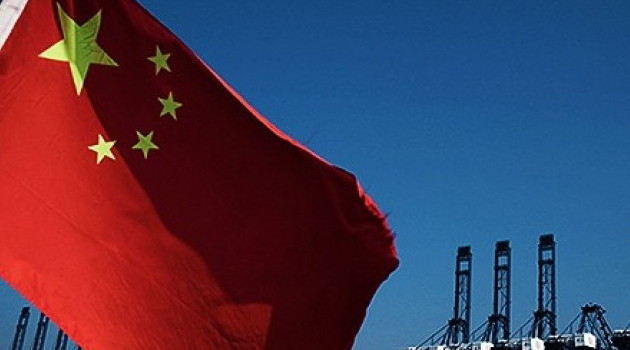China Urges State Companies to Buy American Oil and Grains

China will import record volumes of U.S. oil and is likely to ship more U.S. soy after Beijing signalled to state-run refiners and grains purchasers they should buy more to help ease tensions between the two top economies, trade sources said on Wednesday.
China pledged at the weekend to increase imports from its top trading partner to avert a trade war that could damage the global economy. Energy and commodities were high on Washington’s list of products for sale.
The United States is also seeking better access for imports of genetically modified crops into China under the deal.
As the two sides stepped back from a full-blown trade war, Washington neared a deal on Tuesday to lift its ban on U.S. firms supplying Chinese telecoms gear maker ZTE Corp , and Beijing announced tariff cuts on car imports.
But U.S. President Donald Trump indicated on Wednesday that negotiations were still short of his objectives when he said any deal would need a “different structure”.
China is the world’s top importer of both oil and soy, and already buys significant volumes of both from the United States. It is unclear how much more Chinese importers will buy from the United States than they would have otherwise, but any additional shipments would contribute to cutting the trade surplus, as demanded by Trump.
Asia’s largest oil refiner, China’s Sinopec will boost crude imports from the United States to an all-time high in June as part of Chinese efforts to cut the surplus, two sources with knowledge of the matter said on Wednesday.
Sinopec’s trading arm Unipec has bought 16 million barrels, or about 533,000 barrels per day, of U.S. crude to load in June, they said, the largest volume ever to be lifted in a month by the company and worth about $1.1 billion.
“The government has encouraged us to lift more U.S. crude,” one of the sources said.
China has been one of the top buyers of U.S. crude exports since Washington lifted a 40-year ban on shipments in late 2015.
Since then, U.S. crude exports have risen rapidly as output from shale fields hits record highs. Exports are straining U.S. pipeline and port capacity, and may be reaching a limit until capacity expansion underway are completed, one of the sources said.
“We want to buy more but they might not be able to export more,” the source said.
Other Chinese refiners are looking to reconfigure their plants so they could buy and process U.S. oil, one trade source said.
SOYBEAN INTEREST
In agriculture, China’s state grain stockpiler Sinograin returned this week to the U.S. soybean market for the first time since early April, two sources said.
Soybeans are America’s top agricultural export to China, worth $12 billion last year, and the absence of Chinese buyers from the market had left U.S. farmers wondering if their biggest buyers was going to want their next harvest.
Sinograin enquired about prices for U.S. soybeans this week, traders said, which market participants interpreted as a sign that government curbs on buying American goods had been lifted
“Sinograin is in the market today asking U.S. suppliers to make offers for shipment of old-crop as well as new-crop beans for shipment August onwards,” said a source who works at a private soybean crushing company in China.
“It is a clear message to even private companies that it is OK now to import U.S. beans.”
Two other sources briefed on the matter said Chinese state grain trader Cofco would be permitted to buy U.S. soybeans again, ending restrictions imposed by Beijing as trade tensions rose. The sources declined to be named as they are not authorised to speak to the media.
Sinograin, Cofco and the Ministry of Agriculture and Rural Affairs did not respond to requests for comment.
The Ministry of Commerce had not told state companies to increase purchases of U.S. soybeans, a ministry spokeswoman said.
U.S. Gulf export prices for the new soybean crop rose on Tuesday, which a U.S.-based trader said may indicate a revival in demand from China. Exporters were lining up supplies for October to December shipment, the trader said.
Improving trade relations appeared to be rekindling interest from China for other grains, traders said. That will come as a big relief to U.S. farmers, who saw orders cancelled and business dry up as Washington and Beijing threatened each other with trade tariffs.
Courtesy : theglobeandmail.com
Photo : Republika
[social_warfare buttons=”Facebook,Pinterest,LinkedIn,Twitter,Total”]



